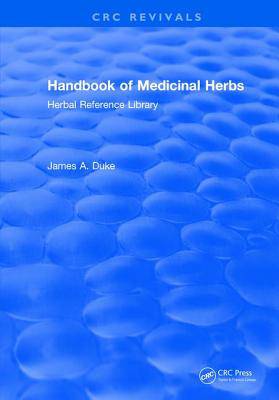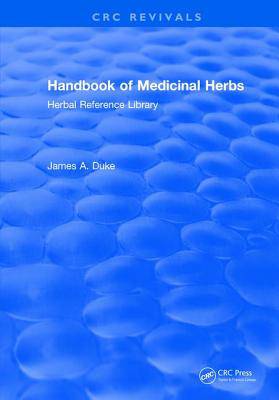
- Retrait gratuit dans votre magasin Club
- 7.000.000 titres dans notre catalogue
- Payer en toute sécurité
- Toujours un magasin près de chez vous
- Retrait gratuit dans votre magasin Club
- 7.000.0000 titres dans notre catalogue
- Payer en toute sécurité
- Toujours un magasin près de chez vous
473,45 €
+ 946 points
Format
Description
A Practical, Authoritative Compendium
This handbook catalogs 365 species of herbs having medicinal or folk medicinal uses, presenting whatever useful information has been documented on their toxicity and utility in humans and animals. Plants from all over the world - from common cultivars to rare species - are included in these 700 pages. The toxicity of these species varies, but the safety of each has been formally or informally questioned by the Food and Drug Administration, National Cancer Institute, Department of Agriculture, Drug Enforcement Administra-tion, or Herb Trade Association.
Designed to enable fast access to important information, this hand-book presents information in both catalog and tabular forms. In the catalog section, plants are presented alphabetically by scientific name. (The index permits you to locate an herb by its common name.) A detailed sketch of the chief identifying features accompa-nies most catalog entries. For each species the following information, as available, is presented and referenced:
Given a plant species, you can easily determine its toxins; or, given a toxin, you can discover which plants contain it. These and other data are presented in convenient tabular formats as appendixes to the handbook. Other information contained in these tables include toxicity ranking and other toxicity data (as applicable), such as mode of contact, organs affected, and lethal dose; and proximate analyses of selected foods. These tables are titled:
Spécifications
Parties prenantes
- Auteur(s) :
- Editeur:
Contenu
- Nombre de pages :
- 689
- Langue:
- Anglais
Caractéristiques
- EAN:
- 9781315893570
- Date de parution :
- 29-11-17
- Format:
- Livre relié
- Format numérique:
- Genaaid
- Dimensions :
- 178 mm x 254 mm
- Poids :
- 1439 g

Les avis
Nous publions uniquement les avis qui respectent les conditions requises. Consultez nos conditions pour les avis.






